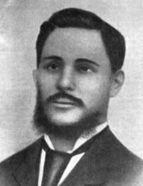

perspective shift, with the "emotion of superiority" of the Brazilians over the Portuguese and the clear affirmation of a national consciousness.
He would return to the topic that earned him a teaching position at Colégio Pedro II — the discovery of Brazil — on other occasions in 1883. In 1900, in connection with the celebrations of the fourth centenary, in 1905 and 1908, in addition to references in the Capítulos de História Colonial and in Caminhos Antigos e Povoamento do Brasil. The thesis, which effectively consisted of two parts — one addressing the discovery itself and the other focusing on 16th-century Brazil — was predominantly Spencerian, particularly in the second part where Capistrano combined evolutionary categories with documentary sources. The work was an important contribution to definitively establishing the Portuguese role in the discovery, dismissing what he called French and Spanish pretensions. Although he acknowledged the Spanish chronological priority over Cabral and dismissed the French claim, he stated, "The sociological solution is different; we owe nothing to the Spanish, as they had no influence on our primitive life; they are much less relevant to our history than the French. From a sociological point of view, the Portuguese were the discoverers."
In his later studies, between 1900 and 1908, he outlined various aspects of the discovery expedition and the armadas of 1501 and 1503, which Varnhagen had left unresolved. Therefore, Brazilian historiography is built upon the early research of Varnhagen, along with the corrections and conclusions made by Capistrano de Abreu. By dismissing the old debate of chance versus intentionality in the discovery as irrelevant, he focused on issues that remained controversial at the time, such as the location of arrival, the authenticity of Caminha's letter, and the presence of Duarte Pacheco Pereira in the region. As a great heurist, he rigorously established the available sources and their use by successive historians. In his analyses, he focused on the level of geographical and technical knowledge possessed by the Portuguese during the period of discoveries, aiming to avoid anachronisms. He contextualized maritime expansion within the wider scope of European involvement in the Atlantic since the Middle Ages and emphasised the crucial role of King John II in reviving the efforts that ultimately led the Portuguese to India and the discovery of Brazil. For him,
This work is financed by national funds through FCT - Foundation for Science and Technology, I.P, in the scope of the projects UIDB/04311/2020 and UIDP/04311/2020.
